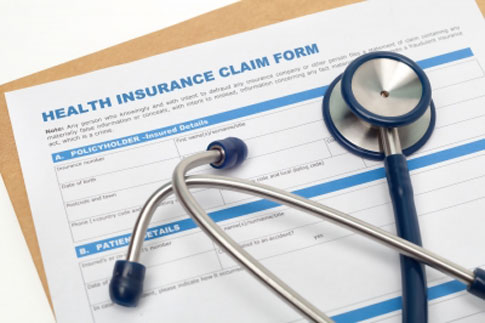The Office of Inspector General for Health and Human Services adds its voice to efforts to add device identifier information to health insurance claim forms.
October 4, 2016

In an "early alert," the Office of Inspector General for Health and Human Services (HHS OIG) has asked CMS to work to add device identifier information to health insurance claim forms. The urging came as the HHS watchdog works through a review of Medicare costs due to recalled or defective medical devices.
An early finding from that review revealed--which involved subpoenas and audits--there were $1.5 billion in Medicare payments and $140 million in copayments and deductibles for just seven medical devices that failed often or were recalled. HHS OIG pointed out in the alert that the lack of device identifier information on claim forms prevented them (and would prevent CMS) from monitoring these recall-related costs easily.
Focus on connected health devices at BIOMEDevice San Jose, Dec. 7-8. |
"Our ongoing review shows that the lack of medical device-specific information in the claims data impedes the ability of the Centers for Medicare & Medicaid Services (CMS) to readily identify and effectively track Medicare's total costs related to the replacement of recalled or defective devices," Daniel Levinson, inspector general, wrote in the alert.
Many groups have asked CMS and the Accredited Standards Committee X12 (ASC X12), which is responsible for updating claim forms, to incorporate information from the medical device unique device identification (UDI) system into these forms. Proponents cite numerous potential benefits, including faster detection of device problems, lower costs, and increased patient safety.
ASC X12's standards are expected to be released on December 1, 2016. The OIG alert points out the urgency of getting the device identifier change into upcoming revision: "Unless the Accredited Standards Committee X12 incorporates the DI into this update, medical device-specific information could not be included on the claim forms until the end of the next decade."
Senators Chuck Grassley (R-IA) and Elizabeth Warren (D-MA), both of whom have been vocal supporters of adding UDI to claim forms, issued a joint press release on the alert Tuesday.
"The Inspector General's analysis shows more clearly than ever that including device information in claims forms is critical for tracking failing medical devices and getting them out of circulation. Including a device identifier on medical claims forms, which a key health industry standards committee is now considering, would allow the rapid identification of faulty devices, which would cut Medicare costs and safeguard taxpayer dollars by saving lives and preventing serious health problems that occur when a device fails," said Senator Warren.
Senator Grassley said, "The alert shows there's a physical cost and a financial cost to patients when medical devices fail and a big expense to taxpayers as well. It makes sense to track medical devices on claims forms so flawed devices can be taken out of use and patients and taxpayers can be better protected."
In an August 11 analysis, Josh Rising, director of health care programs at The Pew Charitable Trusts, wrote that without the ASC X12 update, "Medicare and FDA won't have the data they need to improve safety and care quality for seniors." He added, "That's the robust system Congress envisioned almost 10 years ago when it first mandated unique identifiers on all medical devices used in the United States. Now we need Congress to act again to bring UDIs over the finish line. Adding them to claims data will help realize their full potential to save lives, foster innovation, and promote high-quality, cost-effective health care."
[Image courtesy of PHASINPHOTO/FREEDIGITALPHOTOS.NET]
About the Author(s)
You May Also Like


